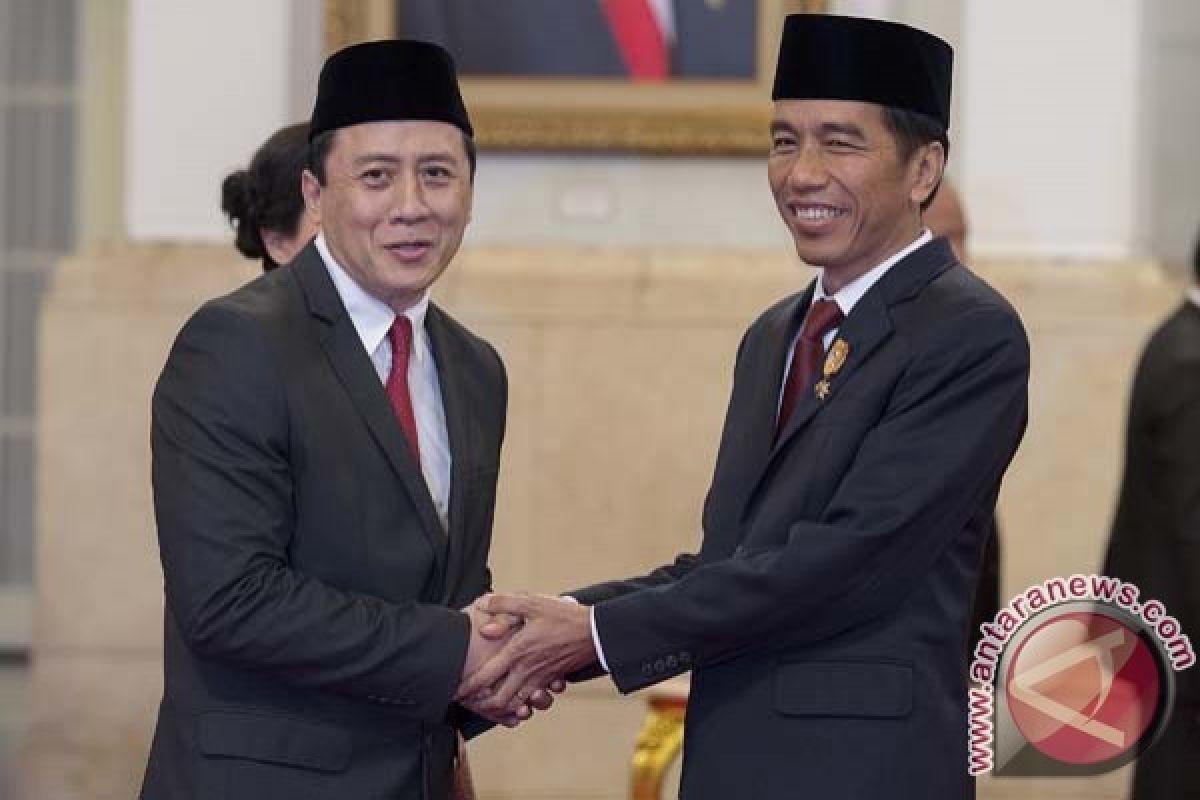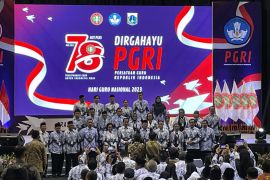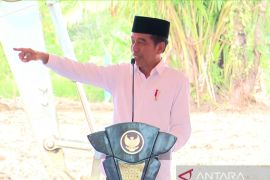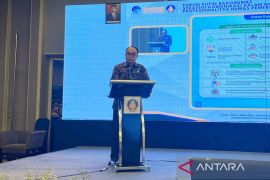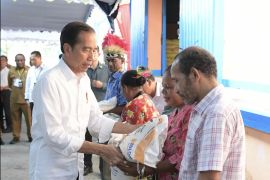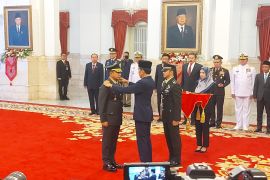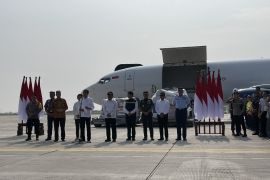We would lose if we seek to compete in high technology market."Jakarta (ANTARA News) - Development of creative economy was among the visions high in the agenda pledged by President Joko Widodo (Jokowi)in his pre election campaigns.
It is natural if the people especially those involved in the business sector expected much when Jokowi won the presidency.
However, they may have hoped for too much and were disappointed when they saw there was no minister in charge of development of creative economy in his cabinet.
Jokowi did form a Creative Economy Body (Bekraf), a non ministerial agency responsible directly to him as the president.
A year after its inception, the agency has not shown significant progress in its mission as it could not step over the bureaucratic hurdles.
In a number of occasions, the president did encourage development of creative economy, saying creative economy would become a pillar of the countrys economy.
"Big leaps are needed. Development of various sectors such as agriculture, fishery and information technology would be much faster if driven by creative industry," he said.
He said the country has big potency to develop creative industry such as video game, film, design and fashion industries.
However, Indonesia should not try to compete in the fields in which it has been lagging too far behind, he said.
"We would lose if we seek to compete in high technology market. We would lose in a competition facing Germany or China, but we have big chance of winning in creative economy," he said.
He said by developing creative economy, in addition to increase added value, we would preserve the national cultures.
The president then invited investors to expand business in the sector of creative economy.
Program of actions
In his financial note speech at the Parliament in August, President Jokowi said the government would push for the implementation of various programs of action to develop the potential capacity of the people in innovation.
In addition to improving the peoples welfare and mastery of technology, creative economy could create many quality jobs with certain quality, he said.
Chairman of the Permanent Committee of Research and Development of Creative Industry of the Indonesian Chamber of Commerce and Industry (Kadin) Sutrisno Iwantono said the president was right in giving stress to development of creative economy as the sector is potential to grow to become a new driver of economic growth.
"Creative economy is a new force potential to create a new national economic growth center," Iwantono said.
Creative economy is environmentally friendly and would not damage national resources as it is based on creativity, innovation, science and technology, he added.
In 2014, creative industry contributed more than 7.5 percent to the countrys Gross Domestic Products (GDP), provided jobs for 11.8 million workers or more than 10 percent of the total number of salaried people in the country and created more than 5 million new business units.
The industry contributed significantly to the countrys foreign exchange income, Iwantono said.
He said the process of drafting regulation on creative economy should be wrapped up immediately and the government should facilitate expansion of the industry and its networks abroad.
Red tape
Bekraf was formed to bring Jokowis vision of creative economy into reality.
Head of Bekraf Triawan Munaf, who is known to be leading figure in creative industry, acknowledged the difficulty in dealing with the complexity of the bureaucracy and red tape.
The agency had been sluggish over the past year as it has no much lee way to move faster including in restructuring itself, he said.
Bekraf is charged with the duty of formulating, determining, coordinating and synchronizing all policies related to creative economy.
While complaining about difficulty in recruiting skilled and professional staff to man his office, in addition to red tape and non existence of separate office, Triawan expressed optimism that he could bring to reality the high expectation of the business players in the sector of creative economy covering application and games,architecture, interior designs, visual communication designs, product designs, fashion. film, animation and video, photography, culinary, music, publications, advertisements, and fine arts.
Bekraf managed to fix its structure as an agency only in July 2015 or six months after its inception with board of management installed. Its budget was approved by the Parliament.
"But this year (2015), it is only operating budget. Budget for working program could be used only in 2016," Triawan said recently.
Bekraf is set to move faster with its strategic programs immediately in 2016, with focus first in three sub-sectors - digital application, film, and music, he said.
Applications with cultural agricultural and fishery themes could boost economic productivity in rural areas, he said.
In 2016, it is expected that a law would come into force on creative economy.
Bekraf will set rules special for each sub-sector, to prevent overlapping and conflicting stipulations, he said.
The sanction against music piracy is different from those on digital applications, he cited.
Bekrtaf has formed cooperation with state owned telecommunications company PT Telekomunikasi Indonesia as well as with the ministry of communications and informatics to develop an alert system in various websites providing pirated musics and films, he said.
Bekraf would form a task force to take care of reports of piracy cases. The task force will receive report of all kinds of piracy either offline or online from all copyright holders.
Triawan said Bekraf would need Rp1 trillion for start-up capital, and hopes that economic creative would be a major sector in the Jokowi era.
(Uu.H-ASG/F001)
Reporter: Hanni Sofia Soepardi
Editor: Priyambodo RH
Copyright © ANTARA 2016
